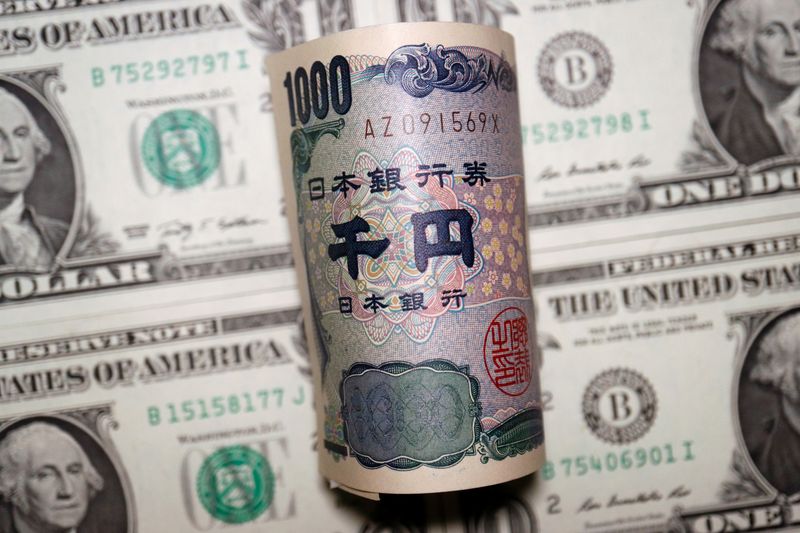By Ambar Warrick
Investing.com -- Most Asian currencies kept to a tight range on Thursday amid renewed concerns over a U.S. and European banking crisis, with investors largely pivoting into safe haven currencies amid fears of broader economic headwinds.
The Japanese yen was among the best performers for the day, rising 0.5% and sticking close to its strongest level in a month, while the Thai baht, which is generally seen as a safer investment among risk-heavy Southeast Asian currencies, advanced 0.4%.
The Chinese yuan was flat after Goldman Sachs) hiked its outlook for Chinese economic growth in 2023 to 6% from 5.5%. The forecast, which is more than the 5% posited by the Chinese government, helped spur some optimism over a Chinese economic recovery, as the country reemerges from three years of COVID lockdowns.
Still, weak risk appetite saw the yuan creep back toward the key 7 level against the dollar.
Fears of a potential banking crisis came back to the fore on Wednesday following a rout in the shares of beleaguered Swiss lender Credit Suisse Group AG (SIX:CSGN). But the lender secured a $54 billion credit line from the Swiss National Bank, soothing some concerns over an immediate collapse in the banking sector.
But this offered little relief to Asian currencies, as investors pivoted out of risk-heavy assets. Most regional currencies were muted on Thursday, while the Malaysian ringgit led losses in the region with a 0.6% tumble.
The dollar fell slightly against a basket of currencies, but was sitting on strong overnight gains. The dollar index and dollar index futures both fell 0.1% after rallying 1% in overnight trade.
The greenback was largely buoyed by safe haven demand, and also saw bids amid increased uncertainty over the path of U.S. monetary policy. Focus is now squarely on a Federal Reserve meeting next week, where the bank is expected to hike interest rates by 25 basis points.
But fears of a brewing bank crisis, after the collapse of three regional U.S. banks, saw traders question whether the Fed will have enough economic headroom to keep raising rates. This caused sharp losses in the dollar earlier this week, offering some relief to Asian currencies.
Focus was also on an upcoming interest rate decision by the European Central Bank, which is expected to raise rates by 50 basis points later in the day. The euro rose 0.3% in Asian trade.
The Australian dollar was among the few outliers for the day, rising 0.4% as stronger-than-expected employment data pushed up expectations of more interest rate hikes by the Reserve Bank.
